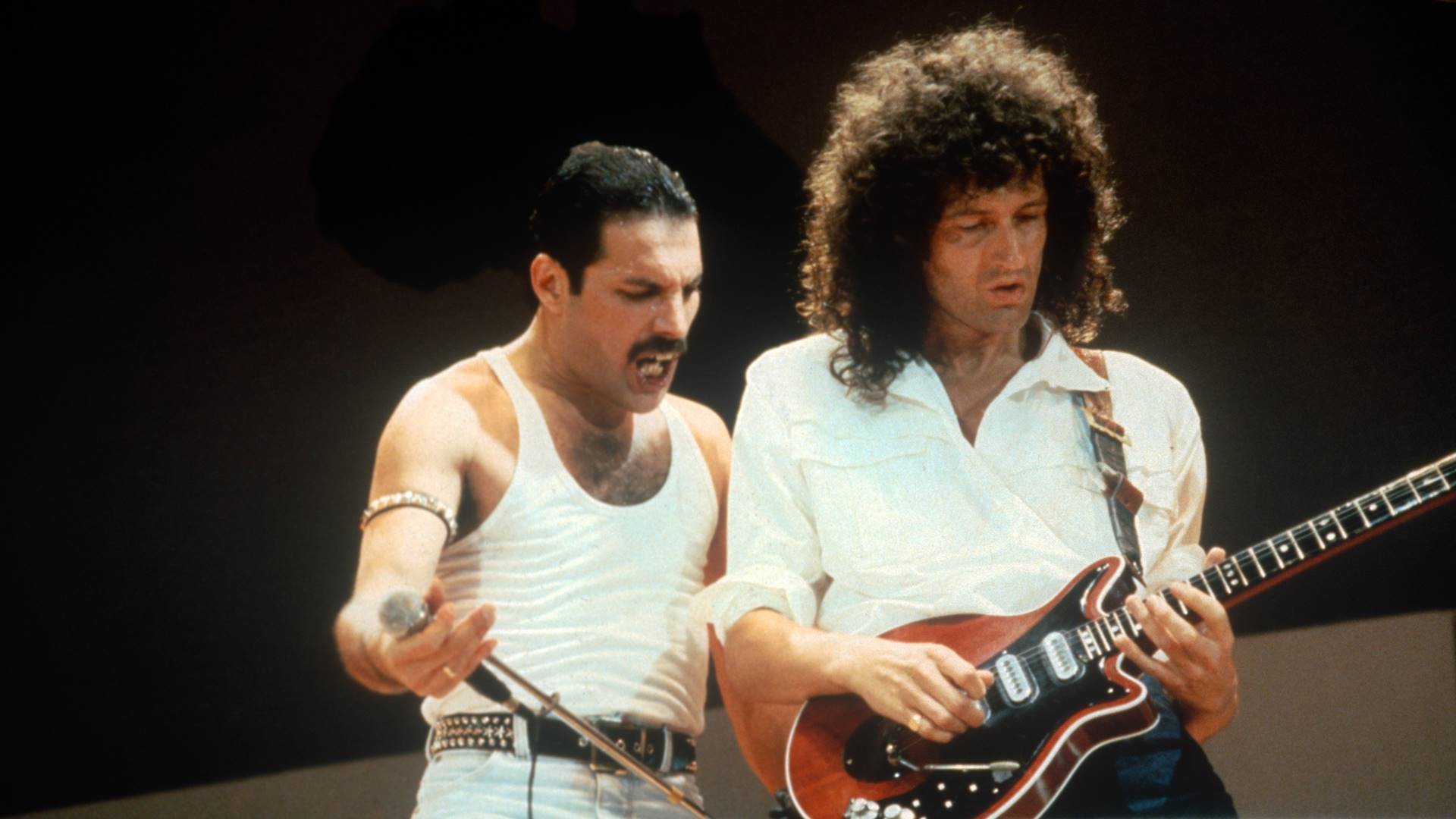The singer will turn 65 in February, when he begins a 40-year career tour. On ‘Estadão’ he reflects on his age and career, talks about his grandchildren and life in Xerém and complains about harassment from fans and political polarization in Brazil
Life has taken Jessé Gomes da Silva Filho to places he never imagined. The thin young composer who 40 years and four months ago had to be pushed onto a stage (at Asa Branca, the extinct Lapa house in Rio de Janeiro) to sing alongside Beth Carvalho, is today a singer, popular idol and symbol of brazilian and happiness.
Recognized nationally as unanimous – even immune to recent political polarization -, on February 4, Zeca Pagodinho will celebrate 65 years on stage, at the Nilton Santos Stadium, in Rio de Janeiro, with a historic show full of special guests: Alcione, Jorge Aragão, Xande de Pilares, Diogo Nogueira, Seu Jorge, Marcelo D2 and Djonga. On June 22nd he begins a national tour performing at the Espaço Unimed (formerly Espaço das Américas), in Sao Paulo. (see more dates below).
“65 years old… Heavy, huh?”, comments the samba singer, at the beginning of the second interview of the day, in his bar (Bar do Zeca Pagodinho) in the Vogue Square shopping center, in Barra da Tijuca, west of Rio de Janeiro. On a Wednesday in which the thermometers in Rio recorded a thermal sensation of 59.5ºC, Zeca Pagodinho’s mood could also be affected. But not for long. As he recalls, his father, Jessé da Silva, died at the age of 87, in 2015, and his mother, Irinéia da Silva, Dona Néia, last year, at the age of 92, was asleep. “Old people and drinking”, underlines Zeca.
Diabetic and with up-to-date tests, health under control, he hesitates when talking about the size of the tray of breakfast medicines, but holds his cell phone to his arm to demonstrate that he usually checks his blood sugar. “Everyone has health problems. It doesn’t matter to me, no. I just live.”
For these and other reasons, the tour Zeca Pagodinho 40 years old includes dates spread across Florianópolis, Campinas, Curitiba, Porto Alegre, Brasilia, Salvador and Recife. Carefully so that the artist does not take up too much of his grandfather’s time.
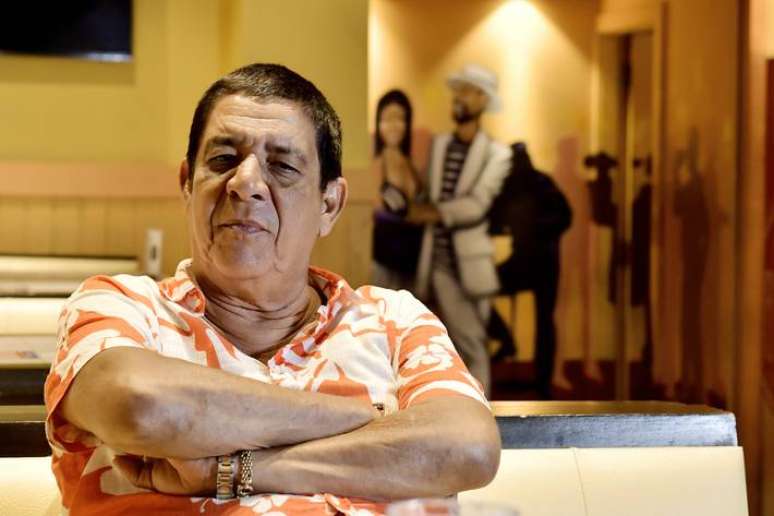
Grandfather Zeca enjoys playing with his grandchildren, both on the roof where he lives, in Barra da Tijuca, where he recently renovated the swimming pool, and in his refuge, the farm in Xerém, a hamlet of Duque de Caxias, in the Baixada Fluminense. “I love putting the mat in the living room and lying down with the little ones. Playing games, watching TV. That’s my thing.”
Zeca recently participated in the animation Bita World, in an invitation mediated by mandolinist Hamilton de Holanda. “I recorded it, I brought my nephew and I thought it was cool, but I don’t watch that cartoon. I prefer Tom and Jerry, Woodpecker. Wow, I wanted him to come back so bad Keys…”, he comments.
“They just say that I have nothing to do here in Rio (in terms of professional commitments), that I’m leaving for Xerém. It’s a nice place, the people are humble. Xerém reminds me a lot of that song by Chico Buarque, Humble people – theme by the violinist Garoto (1915-1955) written posthumously by Vinicius de Moraes, with the contribution of Chico -, everyone helps each other”, he says.
“We have to help others, otherwise life isn’t fun. The other week, my son called and said, ‘Some guy sent 50 baskets of food… And I’m like, ‘For what, man?! ‘. It was not so”. It won’t happen again, it rained over the weekend, a lot of people lost things,” he adds.
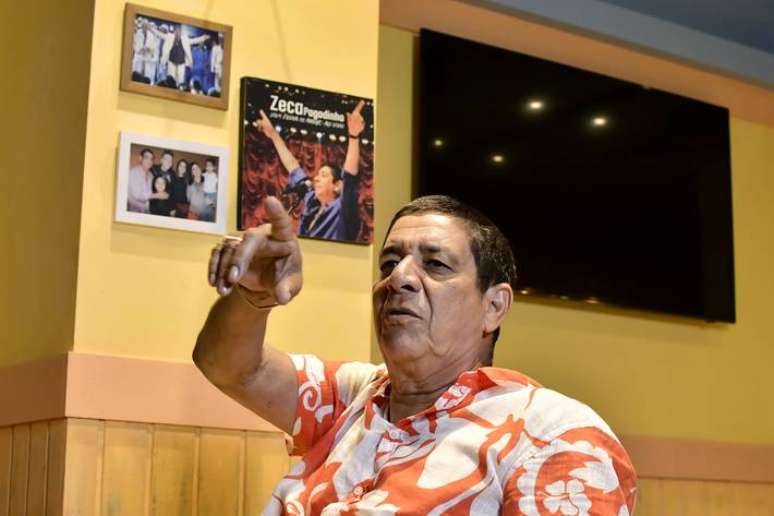
In 2013, during a flood, Zeca played a famous role in assisting local people. But the heavy rains that killed 12 people in the Rio metropolitan area last week did not affect the district too much. “They did a really fantastic job there, Xerém is a luxury today, compared to what it was.” But the heat got worse.
“It’s the dog. Before there were more bushes, mud roads, now it’s all asphalt. There are lots of apartment blocks. Progress, right? On days like today I’m just in the air conditioning.” Bring a bottle of mineral water to hydrate? “No, what is it!? There is tap water there. Xerém is something else. You can’t go without going there,” says Zeca.
Zeca’s life in Barra da Tijuca has elements of the successful character Bourgeoisie, by Seu Jorge. “Here in Rio is my music, the record label, my salon… My wife says I do a nail a day. I do my hands and feet. Hair. I’m fucked, boy! I don’t do three days of it without going there… There’s a picture of me there, as employee of the month.”
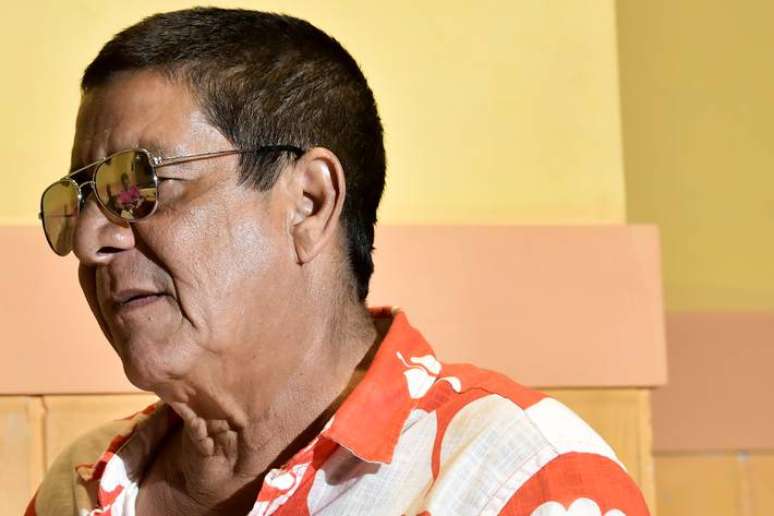
In the middle of the interview he makes a phone call and melts into the phone: “Love of my life, tomorrow I will be the first: feet, hands, exfoliation, so you can achieve your goal. Then we will have lunch and drink some wine. Then you’ll get back to work taking the steak off everyone’s hands (laughs).”
Artist x composer
Zeca Pagodinho knows how to play. She calls a bar employee and asks him to sing. Josué Corán, Venezuelan, 28 years old, sings Let life take me (Serginho Meriti and Eri do Cais) with a strong Spanish accent and, in response to multiple requests from the boss, gives a “sambadita”. “Come into the interview, we have to campaign for her to bring her mother from Venezuela,” asks the singer.
He often says that “the artist swallowed the composer.” But the fountain did not dry up. He just sent a song to Alcyone, and took old lyrics and sent them to partners like Moacyr Luz. “But there are days when I don’t even want to talk about the composer. You get in the cab and the guy comes along with ‘let life take me,’ I’ll take my own life.’ Ah, shit, for the love of God, put Waldick on Tabby, put something on.”
For someone who is seen and loved nationwide as a symbol of friendliness and good humor, harassment from fans and calls for removal selfies it can be a challenge. “I’m very friendly. But not with annoying and violent people. People have lost track, they even want to take a photo with the deceased. I went to the wake of my cavaquin player, Paulinho Galeto, and they wanted me to go to the chapel next door, because the deceased was an admirer of mine… No, I won’t.”
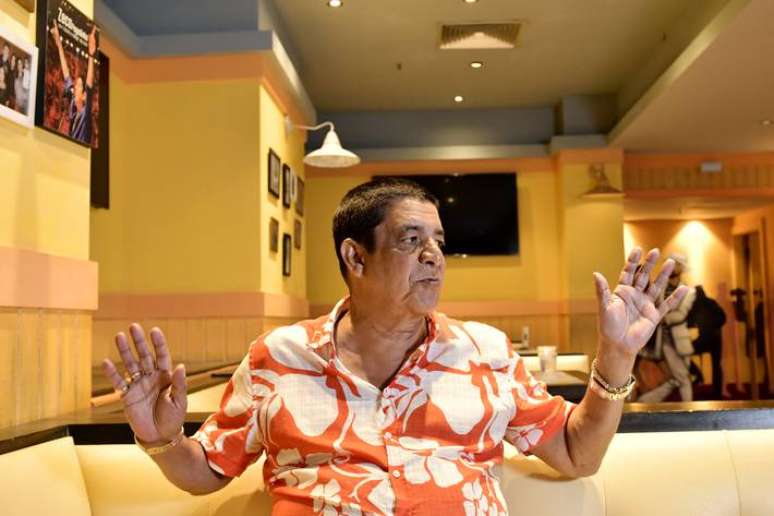
For Zeca, the pandemic affected the Brazilian’s spirit: “I lost some friends. Many people were afraid of everything. More tiredness…”. The polarization of society, the rift between family members due to political differences, also leaves him dissatisfied. “I have friends who have broken off their friendships because of this. How stupid, right? Everyone is what they are…”.
In Zeca’s clan, even religion does not generate discussion. “My wife is evangelical, I’m macumbeiro. I go to church with her, I’m Catholic too. I come from God. And every now and then I have to go when I’m older, do some things.”
Zeca has his mystical moments, but he guarantees that he is not afraid of dying. “I’m sorry! I like this world so much! I like drinks, music, life, happiness so much! I keep looking at these images here at the bar, how many beautiful things I’ve experienced. It’s no coincidence that, everywhere go, there are people smiling.”
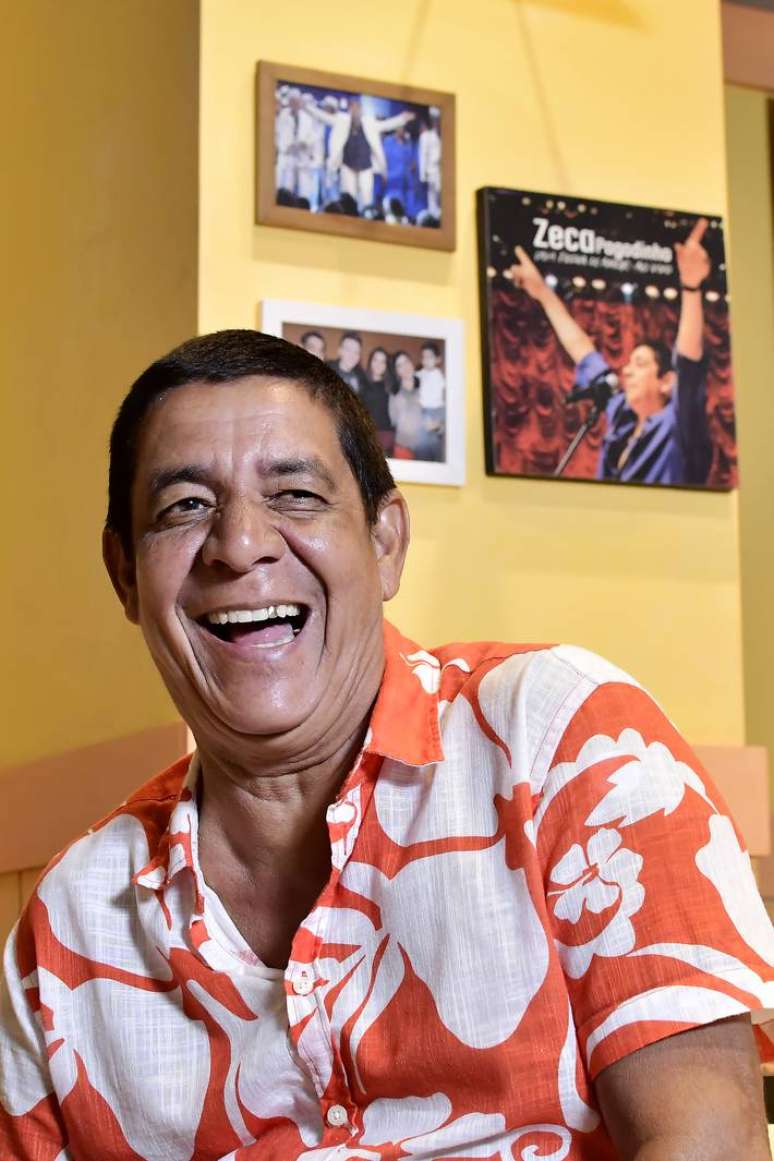
Healthy
Zeca reaches 65 “in top form”, according to Paulão Sete Cordas, musical director of his band. “He is very excited. And motivated, which is the most important thing. Zeca always knows how to handle himself, even when adverse circumstances arise”, comments the musician, recalling the recordings of Acoustics MTV 2 — Gafieirain 2006, filmed during a back crisis which forced the singer to undergo surgery shortly afterwards.
For 36 years with Zeca – he and the percussionists Marcos Esguleba and Ura have been with him from the beginning – Paulão only did not play on the first album he participated in, the pau-de-sebo compilation Brazilian breedof 1985, which also introduced Brazil to Jovelina Pérola Negra, Elaine Machado, Pedrinho da Flor and Mauro Diniz.
“I stayed out of it only because I had agreed to do, together with Mauro Diniz, the musical direction of a Monarco show with Carlinhos Vergueiro in Sao Paulo. Since Mauro had also been invited to make the album, someone had to take care of the Monarch in São Paulo”, recalls Paulão.
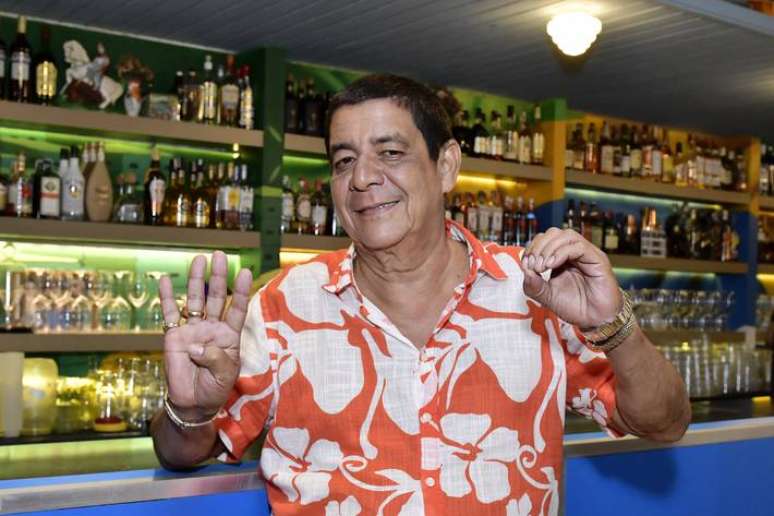
He says he is still “exchanging ideas” with Pretinho da Serrinha to agree the final repertoire of Zeca’s tour, which is expected to include 26 songs. “We’re talking about samba with immense emotional value. It’s very difficult to choose from so many interesting things, from so many albums, without having to resort to medleys.”
Among the saved songs there must be some classics that Zeca hadn’t sung for a long time, like Walk like I did (by Beto Sem Braço and Aluisio Machado, recorded at Jeito Moleque, 1988) and fun gems revered by fans like I waver (from the album The water of my thirst), by Zé Roberto, e Exhausted (Roberto Lopes, Canário and Nilo Penetra).
The director Rildo Hora, a fundamental name in Zeca’s career, will participate as an instrumentalist, to relaunch Jew of Me (by Wilson Moreira and Zeca), from the singer’s debut album, Zeca Pagodinhosince 1986.
Rehearsals will begin on Monday 22 January at the Companhia dos Técnicos studio in Rio de Janeiro, and there could also be surprises in the arrangements. “During rehearsals, everyone has their say. When they play again, something happens and we take advantage of the ideas,” says Paulão.
40 Years Tour Dates
- 04/02 – Rio de Janeiro/RJ – Nilton Santos Stadium – Engenhão (DVD recording)
- 22/06 – Sao Paulo/SP
- 13/07 – Florianópolis/SC
- 27/07 – Campinas/SP
- 24/08 – Curitiba/PR
- 31/08 – Porto Alegre/RS
- 14/09 – Brasilia/DF
- 05/10 – Salvador/BA
- 30/11 – Recife/PE
- From 06/12 to 09/12 – Nave Zeca Pagodinho – 40 years
Source: Terra
Rose James is a Gossipify movie and series reviewer known for her in-depth analysis and unique perspective on the latest releases. With a background in film studies, she provides engaging and informative reviews, and keeps readers up to date with industry trends and emerging talents.

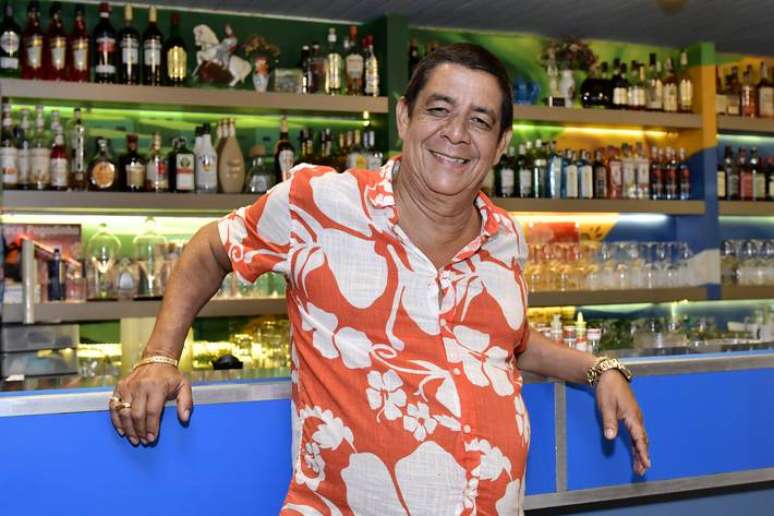

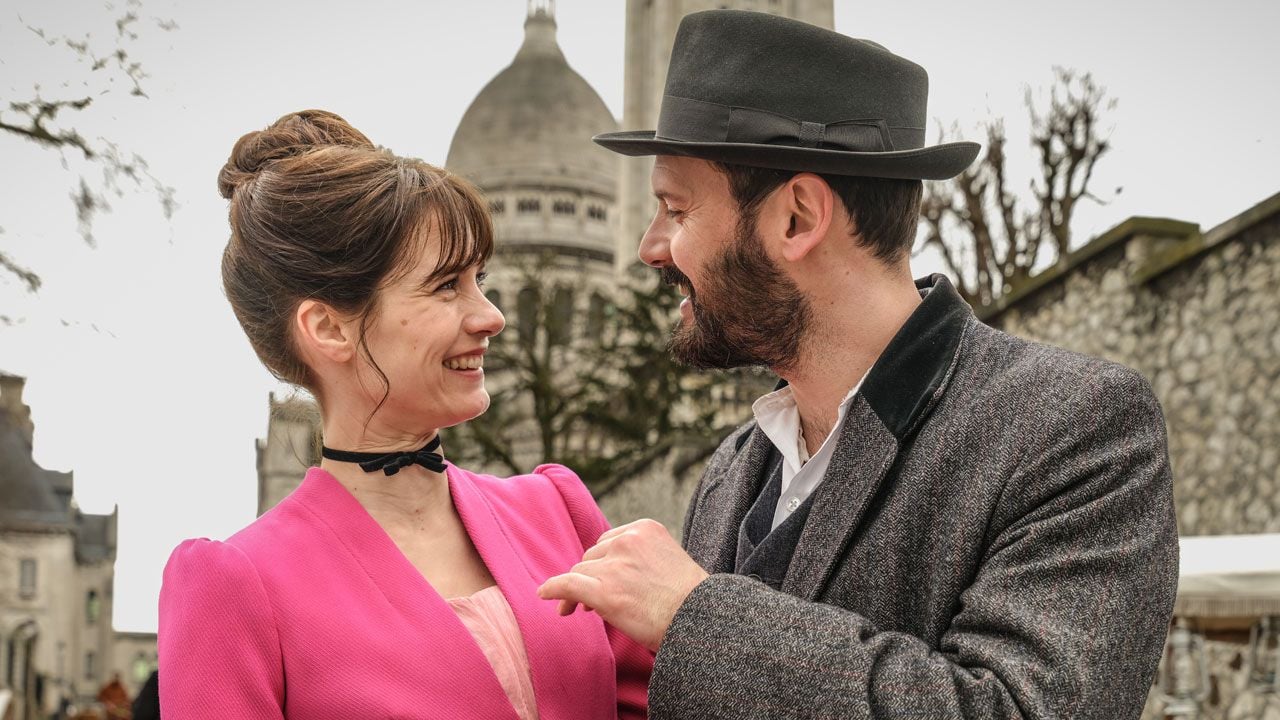
-t86urcblc4s5.jpg)
